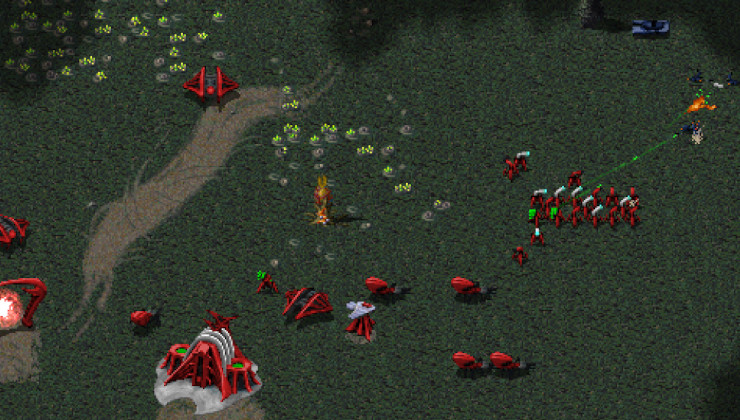In a recent interview with PC Gamer, lead producer Brandon Adler of Obsidian said, "I don't think it was worthwhile developing for Linux. They are a very, very small portion of our active user base - I think around one and a half percent of our users were Linux."
While he did add that is was easy to get the game running on Linux, he cites additional logistical problems like QA and a development team with no previous experience developing for the platform.
These comments stand in slight contrast with statements made in June to Mac Gamer HQ where the interviewer asked "Do Mac and Linux sales justify the extra work involved?" and got back "Yes. Any time you can get the game out on multiple platforms is a huge win for sales because obviously your audience is expanded to include many more people." Although one could argue since the site is a Mac site, the response was equally Mac-slanted, despite the mention of Linux.
As with any such statements, I wonder if the aforementioned added burden can be quantified in time/money spent, and how that compares with the income gained form the 1.5% Linux sales. Surely, it was just a matter of it feeling like a larger burden than it really was due to it being new for the studio?
Smaller studios with reservations about Linux development should really consider outsourcing these efforts, or at least be open to licensed ports. I'm fairly sure the likes of Aspyr/Feral would be more than happy to reap the rewards of managing such ports, especially when the effort is purely QA and support, rather than actually needing to port engines.
Editor Note: If any developer creates a Linux version before Steam Machines are released and expects more than 2% of sales from it, they're doing it wrong. You're doing it for the future and for the long run, not for a quick gain which you won't get right now.
While he did add that is was easy to get the game running on Linux, he cites additional logistical problems like QA and a development team with no previous experience developing for the platform.
These comments stand in slight contrast with statements made in June to Mac Gamer HQ where the interviewer asked "Do Mac and Linux sales justify the extra work involved?" and got back "Yes. Any time you can get the game out on multiple platforms is a huge win for sales because obviously your audience is expanded to include many more people." Although one could argue since the site is a Mac site, the response was equally Mac-slanted, despite the mention of Linux.
As with any such statements, I wonder if the aforementioned added burden can be quantified in time/money spent, and how that compares with the income gained form the 1.5% Linux sales. Surely, it was just a matter of it feeling like a larger burden than it really was due to it being new for the studio?
Smaller studios with reservations about Linux development should really consider outsourcing these efforts, or at least be open to licensed ports. I'm fairly sure the likes of Aspyr/Feral would be more than happy to reap the rewards of managing such ports, especially when the effort is purely QA and support, rather than actually needing to port engines.
Editor Note: If any developer creates a Linux version before Steam Machines are released and expects more than 2% of sales from it, they're doing it wrong. You're doing it for the future and for the long run, not for a quick gain which you won't get right now.
Some you may have missed, popular articles from the last month:
All posts need to follow our rules. For users logged in: please hit the Report Flag icon on any post that breaks the rules or contains illegal / harmful content. Guest readers can email us for any issues.




 How to set, change and reset your SteamOS / Steam Deck desktop sudo password
How to set, change and reset your SteamOS / Steam Deck desktop sudo password How to set up Decky Loader on Steam Deck / SteamOS for easy plugins
How to set up Decky Loader on Steam Deck / SteamOS for easy plugins
Last edited by BillNyeTheBlackGuy on 31 Aug 2015 at 1:14 pm UTC
Fortunately, we have several commenting individuals on this site that actually _do_ have experience in development and specifically game development - Cheeseness being a prime example in this thread. I'm sure you'll find that most Linux communities inherently have more programmers than other OS-specific communities and that many of us who aren't necessarily in the business of games, have been or are involved in projects on the size and scale of most game development projects, as Linux is usually used in critical applications.
In any case, I'd welcome any counterpoint you may have?
No hate from my side, just puzzlement and a desire to understand Obsidian's point of view, as well as let them see mine (and "ours" from what I see in this thread).
Talking about numbers, mine were taken directly from SteamSpy which can track who owns what. It's not perfect, but it's a good measure to go by. There's nothing wrong in doing things like this, as it allows us to see what level of income some developers deem acceptable for a port.
It's true people shouldn't spread hate, but people need to learn to separate hate from curiosity and criticism.
Numbers were clear they couldn't set their expectations higher than what our user base allowed.
But again, what Linux(steamOS) represents is (if sucessful) the FUTURE.
It kills me seeing ppl wanting short term profit on a long term move.
Last edited by amonobeax on 31 Aug 2015 at 1:42 pm UTC
Now, two things. First, if Linux does not maximise the investment, it does maximise crowd funding campaigns big time, because you can get much more money form game starving Linux and Mac users on the promise of having their OS supported. Just look at how many projects add Linux as a pledged goal without thinking about the technical details before hand... Divinity Original Sin is a perfect example of this tendency, as well as many others.
Then, as many stated before me, supporting Mac & Linux is good for your image and for socially promoting your game. I can't recount how many times I made recommendations for friends of mine after playing a game on Linux. I even bought Metro Redux on PS4 as a birthday present for a friend. Developers should know that. When you reach a customer, his acquittances become potential customers.
How can you count how many Windows users bought PoE because their friends played the Linux version? You can't.
Also, before Microsoft's dreaded monopoly, there used to be so many platforms you couldn't even remember them all. Did it prevent developers from earning wages? Absolutely not. I know coding and porting was much simpler back then, but with all major engines being multiplatform nowadays - including PoE's engine, Unity - it's possible to develop with multiplatform in mind from the ground up, again.
Oh yes, there are some discrepancies in supporting Linux. I for once was very upset with the Witcher 2's launch and its very poor performance. But now and then I see Linux users being very harsh about bug correcting and such. Keep in mind, devs are people for whom making games is their bloody job. They get home during the week-end, and they need to get some rest at some point. Some Linux users seem to forget that, and it's a shame. I mention that fact because it's precisely Q&A which gets pointed at in the article's case. Don't forget to be thankful to companies who support Linux in a good fashion.
So, there is not much to think about in Adler's statement, other than having yet another guy looking for money talking about money, and one of his colleagues not feeling the same about it. So we know those two guys point of view, and another interesting question would be, what does Obsidian, as a company, think about it.
Am I missing something? I would really love for them to come out with a bit more detail about this...
They can't, they have to extrapolate from public profiles. (So everybody who doubts that Steam survey is correct should doubt this one as well.) But that's not the primary number I'm having heavy doubts with. Everybody doing business will tell you that a lot of money is subtracted from your sales before you get it into your hands. Some examples have been given in an article linked by someone above. We cannot just multiply an extrapolated nuber of sales with an unlikely share of it being left to the developer, subtract a made up number of QA cases which we don't know how expensive they are and tell the ones who plainly know better than us how much bucks they made profit from this.
I happen to be long term professional software developer as well, just not in the gaming industry. But if you ask me, you should not ask software developers about such matters. It's business. If I read correctly, Cheeseness didn't even subtract any taxes. That's why you shouldn't ask me, either. But what I can imagine very well is that bug hunting and support on system foreign to you is very hard. I had a tough time when I developed my first open source piece of software on Linux although I was using Linux for 15 years, just because the tools are... strange to me. All that costs time and time costs money.
Last edited by Eike on 31 Aug 2015 at 1:54 pm UTC
Precisely. Unless he's saying that Linux brought the cost up to more than 200K, in which case I think we'd all really like to know what the issues where so we can try and fix them. I don't think that's the case though.
Hence why I said it's not perfect, we are simply guesstimating and there's nothing wrong with what we are doing. I like trying to see what a developer deems as acceptable or not, it helps us after all to see.
Increase the games, increase the number of people comfortable switching to Linux. Increase the number of people using Linux as a gaming platform, increase the market share and thus profits. DON'T use the current market share as an excuse to not increase the available games, that's ridiculous.
Yes. That's the way it works with cross platform development. Adding another platform WILL expose more bugs. That is not a bad thing. It should improve the overall quality of the code base. It should even improve the code quality on the reference platform.
Well, first off knowing what 1.5% of sales translates to in an actual dollar figure is barely educated guess work at best. Steam Spy can give a rough idea, but it's far from an accurate indicator. Plus there's Valve's cut of the sales, how many of those sales were full price, how many were on sale, how many were steam keys from 3rd party resellers, what price did they charge? There are a lot of variables here, most of which we'll never truly know.
Second is the engine. Had it not been for Mac and Linux, Obsidian would have likely used their own engine for the game, the one they used for Dungeon Siege 3, in fact they said so in one of the videos early in to the project. We can probably neglect the licensing fee for Unity, since it;s not all that expensive and that type of money is pocket change for a company the size of Obsidian, but there is the time and effort for them to learn an engine they hadn't used before, rather than using their own engine which they all knew well.
Next comes middleware and tools. A good chunk of middleware for PC development is specific to DX and Windows, given that it's the dominant platform. This is a situation that may change, maybe already has started changing, with Steam Machines arriving soon, but at the time Obsidian started developing Pillars it was likely still a very Windows/DX dominated area. So the choices then are to find tools that will do the job that will support Mac and Linux, which may or may not exist and may or may not be as robust or user friendly as the popular tools. Given that choice you then still have to learn to use the new tools. The other option is to port existing tools and middleware to support Mac and Linux.
Finally, there's the issue of Q&A that was brought up in the quote itself. How many people did Q&A for Linux? How many hours did they spend total doing Q&A for Linux (still are to some degree maybe)? What kind of salary do these people earn?
The point is, there are so many variable involved that it's practically impossible for anyone outside of Obsidian or a similar sized company that went through a similar situation (InXile) to have a good idea of what the costs and effort expended really were. Knowing the amount of money they made from the game off Linux is also a slightly educated guess at best, so trying to subtract an almost completely blind guess from another (slightly less blind) guess seems pretty ridiculous to me. I'm going to error on the side of the professionals at Obsidian know a hell of a lot better than I do what the costs were and whether the sales justified the costs.
As to the point of investing in the future, that may be valid. At this point, though, SteamOS is still a very uncertain quantity. I hope it succeeds, I hope it raises Linux marketshare high enough to convince most, if not all, developers and publishers that it's profitable to develop for Linux, but that's completely up in the air at this point.
Last edited by Keyrock on 31 Aug 2015 at 2:48 pm UTC
I specifically remember obsidian saying they were done using their engine because of how expensive the middleware was. Mac and Linux support was a big reason why they used Unity, but they were going to move to Unity regardless of whether they supported mac and linux or not.